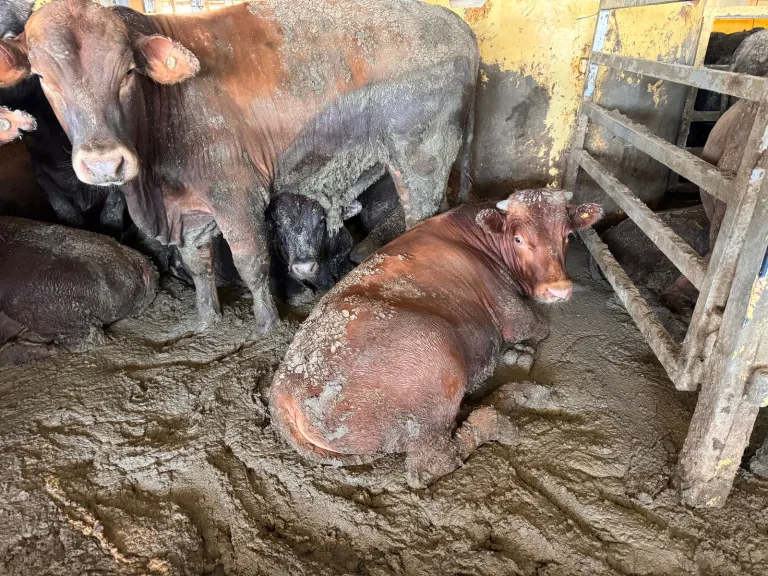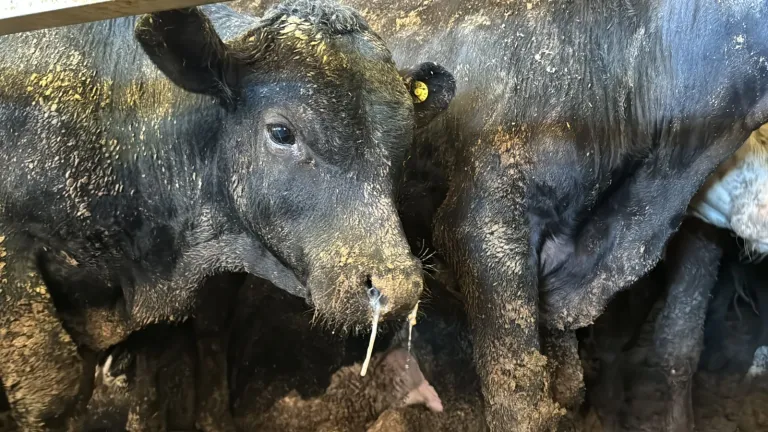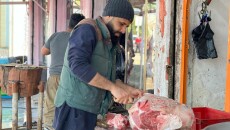The Iraqi Ministry of Agriculture decided to place 19,000 Brazilian cows imported from Brazil in quarantine for the purpose of ensuring their safety, while it reduced customs duties on live animals imported for slaughter and breeding purposes by 50 percent.
The measures taken by the Ministry came after the price of one kilogram of skyrocketed to 25,000 Iraqi Dinars IQD (USD17), a record high in the past 20 years.
In order to ease the crisis, the Iraqi government has decided to facilitate the process of cattle import in order to boost demand into local market which suffers from decline in cattle breeding local due to poor rainfall and water scarcity.
This rise in meat prices forced the Iraqi Ministry of Agriculture to hold an urgent meeting during the past few weeks in order to find solutions and decided to reduce customs duties on importing cattle by half.
The decision coincided with the spread of a press report on the Daily Maverick, a South African based publication with global coverage, which talked about a carrier heading from Brazil to Iraq since last February 12, loaded with 19,000 cows.
The report noted that a stinking odor was emitted from the vessel while it was docked on the shores of the South African city of Cape Town to refuel and provide fodder for the cows. The report raised doubts about the safety of animals and their suitability for human consumption.
The journey from South Africa to the Iraqi port of Basra takes 24 days.

Bryce Maruk, a consultant physician at the National Council for the Prevention of Cruelty to Animals (NSPCA), told the paper, “The accumulation of cow dung produces a high percentage of ammonia gas, and this affects the respiratory system of the cows and exposes them to health problems.”
Grace De Lange, who also works for the NSPCA and conducted examinations of the cows, said, “We unloaded some cows from the ship on the recommendation of the
veterinarian for the purpose of treating them, and we also saw some dead cows.”
The Veterinary Department of the Iraqi Ministry of Agriculture denied recording deaths among cows. Samer Habib, Director General of the Veterinary Department, said in a statement, “These cows transported from Brazil were granted health certificates to enter Iraq, in addition to a license certificate in Brazil.”
“We contacted the investor and he assured us that there was no case of death on board the ship,” he stressed.
"After the shipment arrives in Iraq, the necessary measures will be taken, and the cows will be placed in quarantine until their safety is confirmed before they are allowed to enter the markets."
Despite the high prices, people complain that imported cattle are not healthy and do not taste delicious as domestic cattle.
Dr. Hamid Al-Nayef, an expert in agriculture and livestock in Iraq, said, “The drought that Iraq witnessed during the past years led to a water shortage, which forced many livestock breeders to sell their livestock.”
“The crisis arose from here, because the Ministry of Agriculture did not support farmers and livestock breeders, which led to Red meat prices rise.

He explained that the Ministry of Agriculture could not provide livestock breeders with fodder and was not supportive.
“This is a really big problem. The Ministry of Agriculture cannot only think about growing wheat and barley and neglect poultry fields, their products, and sources of red meat.”
The expert pointed out that Iraq, in order to avoid importing animals and rising meat prices, “can double livestock wealth within six months, by supplying wheat and fodder and providing water to livestock breeders. Otherwise, the price of a kilogram of red meat will exceed 24,000.”
The house of representatives vowed to host relevant officials for further inquiry.
Zozan Ali Hajani, Vice Chairman of the Agriculture, Water and Marshlands Committee in the Iraqi Parliament, told (KirkukNow), “We will host the Minister of Agriculture and Water Resources on the issue of cows in South Africa and we want to confirm whether the imported cows have health certificates or not, as well as verify their safety.”
He suggested import for breeding beside slaughter.
“Meat prices have risen to a degree that requires providing full facilities for the process of importing livestock, especially the import of live animals for slaughtering and breeding purposes,” according to Hajani.






